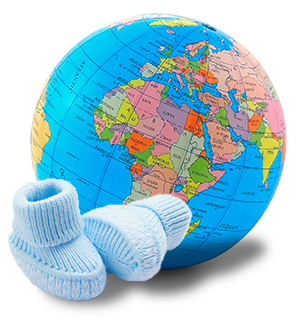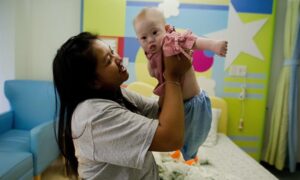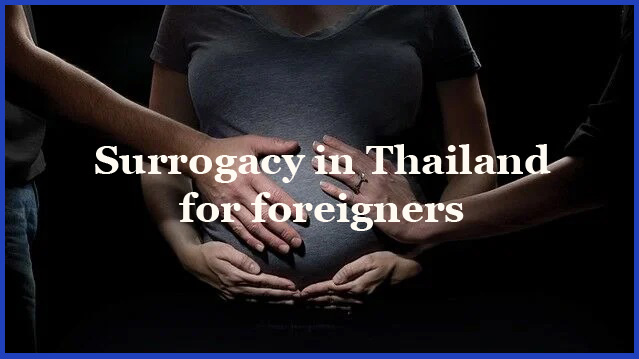Surrogacy in Thailand for foreigners: Events that led to the Surrogacy ban for international citizens!
Surrogacy in Thailand for foreigners used to be the most preferred alternative among medical tourists a few years back. Moreover, due to its expertise in gender affirmation surgery and later cosmetic surgery, Thailand became the centre point for medical tourism as early as the 1970s.
Also, Thailand became a leading Asian country in the global medical tourism industry, Malaysia, and Singapore, after the privatization of its healthcare system in the late 1990s. This was made possible by “a Thai way” of excellent service and medical knowledge.
Furthermore, Thailand has a reputation for having cutting-edge knowledge in reproductive technology thanks to the 1987 birth of “Mung Ming,” the nation’s first dek lord kaew (Test tube child) baby, who was conceived via IVF at Chulalongkorn Hospital. As it was connected to thansamai (modernity), nationalistic pride in Thai science and medicine, as well as Buddhist beliefs and the elevating of procreation and the birth of new life, assisted reproduction was quickly accepted by Thai society.
How has Gestational surrogacy thrived in Thailand in the past?
The first gestational surrogacy arrangement utilizing IVF happened at the same prestigious hospital in Bangkok in 1991, just four years after “Mung Ming” was born. Up until that point, surrogacy in Thailand for foreigners had only been an altruistic, familial activity shared by sisters and other close relatives. However, thanks to new technology that allowed for the separation of genetics and gestation, surrogacy may now also be commercialized in Thailand.
As Thailand became a top destination for reproductive tourism in the early 2000s, with an increase in clinics offering ART treatment to both Thais and foreigners, what had initially been a quiet business with little publicity grew. Besides, Thailand’s advanced medical and hospital services, expertise in ART, and reasonably priced prices when compared to the United States and Europe are all contributing factors to the country’s rising popularity as a location for reproductive services. Moreover, the nation’s tourism industry is also well established, making it a “safe” and alluring location for medical travel.
Surrogacy regulations prior to the 2015 ban in Thailand
Surrogacy agreements were not clearly regulated by Thai law prior to 2015, and commercial surrogacy was neither permitted nor prohibited. However, the police’s arrest of the Taiwanese brokering firm “Baby 101” in Bangkok in February 2010 brought to light the need for ART legislation.
In order to deliver babies to foreign clients for payment, they had locked up 15 Vietnamese women who had been trafficked. Eventually, the Thai Cabinet approved the draft ART Bill number 167/2553, which forbade commercial surrogacy, in May 2010, but the National Assembly did not ratify it because of the political unrest of the time.

However, in August 2014, there were two additional significant surrogacy scandals that brought international attention to Thailand’s surrogacy industry and resulted in the termination of transnational surrogacy contracts. The “Baby Gammy” case came first. According to reports, David and Wendy Farnell, who are from Australia, abandoned a baby boy with Down syndrome in Thailand.
How did Baby Gammy’s case prove to be a roadblock for Thailand surrogacy?
In the Thai media, Gammy’s Thai surrogate mother, 21-year-old Pattharamon Chanbua, explained that she needed financial assistance to pay for Gammy’s medical expenses. So, in order to pay off family debts, Chanbua, a mother of two, agreed to act as a surrogate mother. Besides, she had been promised about 350,000 (roughly €8,400 at the time).
Moreover, she was soon found to be expecting twins, and several months into the pregnancy it was learned that one of the children had Down syndrome. Chanbua claims that the intended parents pressured her into having an abortion, but the Farnells and the agency both denied this, and Chanbua refused because of her Buddhist beliefs. Following the birth of the twins, the intended parents returned to Australia with Gammy’s sister, who did not have Down syndrome, leaving Gammy in the care of Chanbua and her family.
Further research revealed that David Farnell had previously been found guilty of 22 instances of sexual assault against girls under the age of 13 in the 1980s and had received a total prison term of four and a half years.
This raised concerns about Gammy’s sister’s safety and sparked a contentious debate about surrogacy not only in Thailand and Australia but also globally. The media condemned the couple and demanded that commercial surrogacy be outlawed. Despite what the surrogate mother and the media claimed, the Farnells did not intentionally abandon Gammy, according to the Australian court’s investigation.
The Baby Factory case further worsened the situation for surrogacy in Thailand for Foreigners!

There, they discovered nine surrogate children (ranging in age from two weeks to two years), seven nannies, and a pregnant surrogate mother.
Moreover, the apartment was associated with Mitsutoki Shigeta, 24, the son of a Japanese billionaire, who was initially under investigation for child trafficking and child exploitation but was never charged with any crime. Besides, four sets of twins were among the 13 children that Shigeta had paid for to be carried by a surrogate in Thailand.
Also, he had previously been given custody of four surrogate children and had fathered 17 children in Thailand through surrogacy.
It was not illegal at the time to have many children through surrogacy, but it did show how “the industry lacked accountability or any means of monitoring how many surrogates were being used by any one individual.
How did these instances put a halt to all types of surrogacy in Thailand?
These cases took place as Thailand was experiencing political unrest. The NPOC launched a campaign against commercial surrogacy in response to the Baby Gammy and Shigeta cases and the international criticism of Thailand’s unregulated surrogacy market, closing 12 clinics, publicly apprehending doctors involved in surrogacy, and forbidding foreigners from leaving the country with children born through surrogacy in Thailand. After that, the NPOC amended and resurrected the 2010 draft ART Bill, which went into effect in July 2015. That said, the 2015 bill restricts eligibility for surrogacy to non-commercial arrangements, forbids intermediaries or brokers for surrogacy arrangements, and limits surrogacy to only the local Thai citizens subject to fulfilment of certain criteria.


